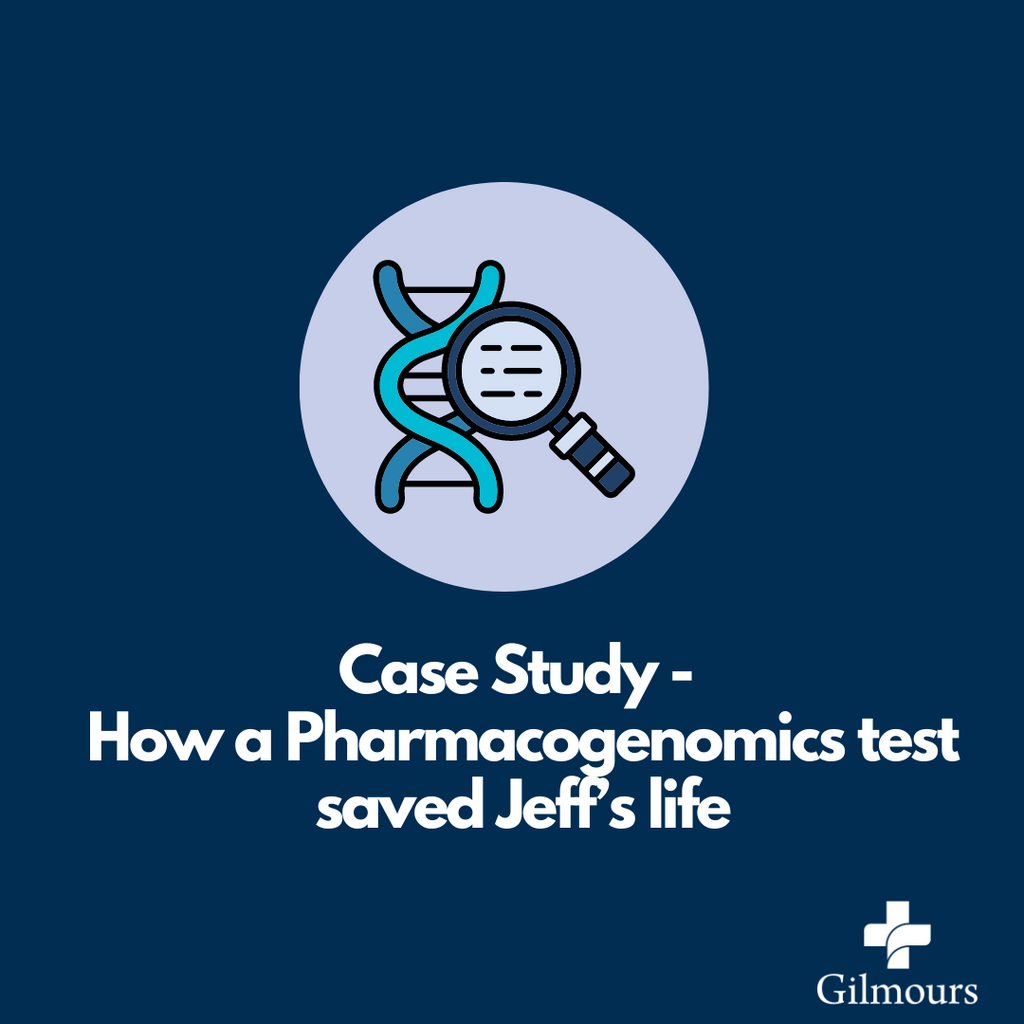How a Pharmacogenomics test saved Jeff’s life

Jeff, a regular patient of mine, was collecting his medication and asked for a printout of his regular medicines to take to his heart specialist appointment in Wellington. We provided the information and asked Jeff a few days later how he got on. It turned out that he was being referred for his 8th stent insertion, a medical procedure where a stent is inserted to open up narrowed or blocked blood vessels
It appeared odd that Jeff was getting an 8th stent done, despite being on a medication, called clopidogrel, which is meant to prevent blockage of heart blood vessels. Wow – that’s a lot of plumbing fixes in the heart, and with my knowledge of how our genes influence some of his regular medicines, I suggested we do a Pharmacogenomics test to see if his medicines were right for him. Our ability to process certain medicines can be affected by our genetic make-up. We all have varying responses to medications, and our genetic make-up can help explain why some medicines may work for us while others may cause side effects.
When I sat down with Jeff, he was concerned about the outcome of his next operation and had been experiencing quite a lot of joint pain, as well as lower body muscle weakness. He was feeling fairly low in energy and was keen to learn more about his medicines.
A few weeks later his Pharmacogenomics test results came back.
- It is estimated that up to 20% of people have Clopidogrel resistance – they can’t process into its active form. We don’t know it’s not working until there is an event - a blood clot or another stroke. When Jeff has previously had stent insertions, he has been prescribed Clopidogrel, an antiplatelet drug, that prevents blood clots forming around the stent. It can also be used in patients who have had a stroke to prevent more strokes. Well Jeff’s genes show he cannot convert Clopidogrel – the previous courses for each stent insertion were ineffective – 12 months of medicating each time. It has been good luck rather than good management that Jeff is still here. I sent a report to Jeff’s GP and Cardiologist to suggest an alternative medication that would work – it was great to see the right medicine was prescribed for Jeff after his procedure.
- Jeff was on Atorvastatin 80mg – a high dose of statin - indicated when there is high level of cholesterol building up in the coronary arteries. The damage is one of the reasons why stent insertions are performed – to open up the pipes that have been clogged with cholesterol. His genes are associated with higher Atorvastatin levels compared to a normal – this means he has an increased risk of toxicity related muscle weakness and muscle wasting from his statin medication. What Jeff had put down to arthritic hip problems, was Atorvastatin causing muscle wasting and loss of strength. His kidney function had also significantly dropped over the last four years – possibly due to Atorvastatin toxicity. One of Jeff’s blood pressure medicines – Diltiazem – also increases exposure to Atorvastatin, increasing its toxicity. Luckily there are alternative statins that are more suited to Jeff’s genotype, and without the drug interaction – once I contacted his GP he was prescribed a change to Rosuvastatin.
- Jeff is taking Allopurinol for gout – his genetic test showed us he would normally need a higher dose of Allopurinol than expected. When I chatted with Jeff, he realised he had been experiencing pain in the big toe at night – a classic symptom of a gout flare. His uric acid levels looked OK on his bloods, but he was still experiencing pain. His GP gave Jeff a slight increase in dose and the pain has gone away. Reducing uric acid levels also helps to prevent kidney and heart damage.
Jeff is very engaged with his health and wants to ensure he enjoys retirement with his lovely wife. Two weeks after changing the statin and increasing his Allopurinol (and before his operation) Jeff commented to his wife, “I feel the best I have in many years! My aches are gone, and my energy levels are better”. Fast forward to today and Jeff feels the Pharmacogenomics test has been invaluable in empowering him to be his own health champion, ensuring his medicines are tailored to his genes.
- Liz Dixon
